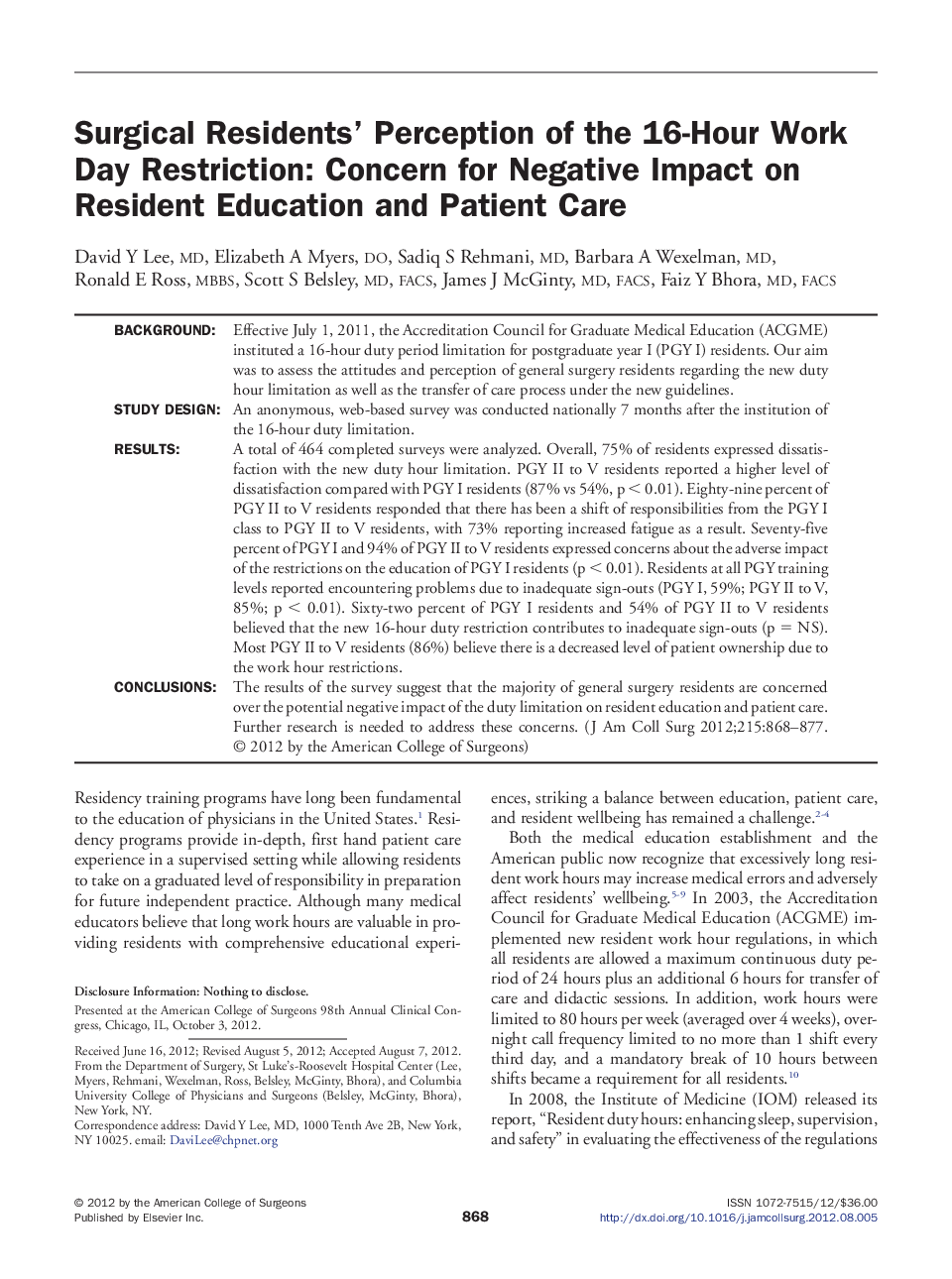| Article ID | Journal | Published Year | Pages | File Type |
|---|---|---|---|---|
| 4293189 | Journal of the American College of Surgeons | 2012 | 10 Pages |
BackgroundEffective July 1, 2011, the Accreditation Council for Graduate Medical Education (ACGME) instituted a 16-hour duty period limitation for postgraduate year I (PGY I) residents. Our aim was to assess the attitudes and perception of general surgery residents regarding the new duty hour limitation as well as the transfer of care process under the new guidelines.Study DesignAn anonymous, web-based survey was conducted nationally 7 months after the institution of the 16-hour duty limitation.ResultsA total of 464 completed surveys were analyzed. Overall, 75% of residents expressed dissatisfaction with the new duty hour limitation. PGY II to V residents reported a higher level of dissatisfaction compared with PGY I residents (87% vs 54%, p < 0.01). Eighty-nine percent of PGY II to V residents responded that there has been a shift of responsibilities from the PGY I class to PGY II to V residents, with 73% reporting increased fatigue as a result. Seventy-five percent of PGY I and 94% of PGY II to V residents expressed concerns about the adverse impact of the restrictions on the education of PGY I residents (p < 0.01). Residents at all PGY training levels reported encountering problems due to inadequate sign-outs (PGY I, 59%; PGY II to V, 85%; p < 0.01). Sixty-two percent of PGY I residents and 54% of PGY II to V residents believed that the new 16-hour duty restriction contributes to inadequate sign-outs (p = NS). Most PGY II to V residents (86%) believe there is a decreased level of patient ownership due to the work hour restrictions.ConclusionsThe results of the survey suggest that the majority of general surgery residents are concerned over the potential negative impact of the duty limitation on resident education and patient care. Further research is needed to address these concerns.
